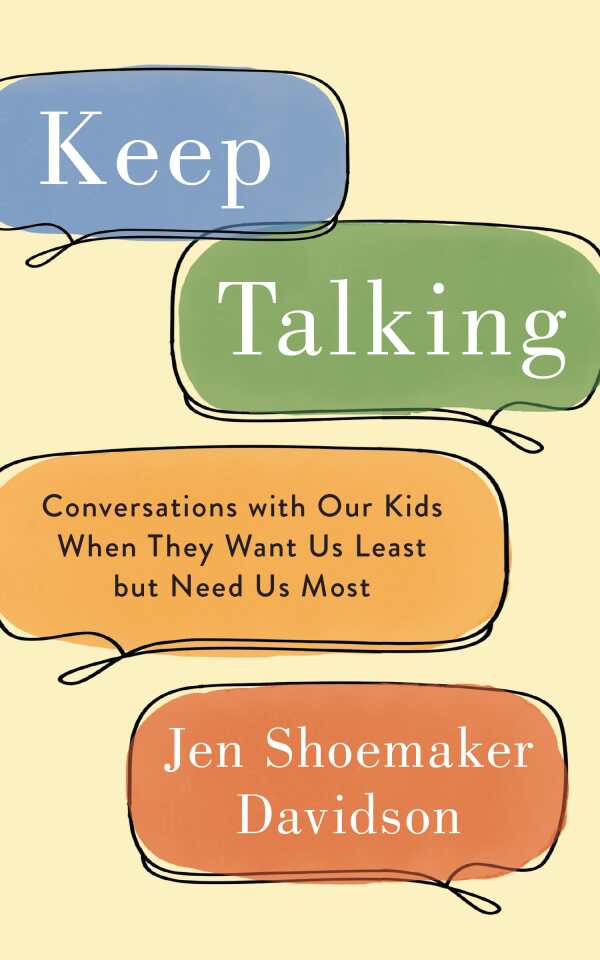Keep Talking
Conversations with Our Kids When They Want Us Least but Need Us Most
The clear-minded parenting guide Keep Talking outlines a four-pronged approach to parent-child conversations based on connection, encouragement, wisdom, and understanding.
Jen Shoemaker Davidson’s parenting guide Keep Talking is about connecting with children through meaningful conversations.
Forwarding strategies for cultivating open communication between parents and children, this book outlines a four-pronged approach to conversations based on connection, encouragement, wisdom, and understanding. It aims to inspire in adolescents and teenagers the confidence and empathy required to thrive in adulthood and to deepen parent-child connections. There are tips for starting and ending conversations, for practicing active listening, and for asking appropriate questions. Rather than filling awkward pauses, the book recommends embracing silence and allowing space for children to speak up instead. It also warns against delivering unsolicited advice.
Elsewhere, there’s practical advice for modeling good behavior, like demonstrating a healthy relationship with screens. When it comes to teaching life skills, the book recommends a straightforward approach: Teach your child to perform a chore and then ask them to show you their skills. The book also emphasizes serving as a “safety net” for children by encouraging them to come to parents with their mistakes rather than hiding them. In addition, it stresses the importance of friendship and community, defining both as necessary for a happy, healthy life.
The chapters are short and succinct, if sometimes short on sufficient support. However, anecdotes related to Davidson’s relationship with her daughter are held up as compelling examples, as with a story about how her daughter asked for the definition of “blow job” while watching a high school volleyball game. These examples are paired with sample conversations for clear guidance throughout.
Many of the book’s suggestions are open-minded and innovative. When it comes to sex, for example, the book recommends detailed information-sharing, including condom instructions with cucumbers, intentional discussions about consent, and an emphasis on pleasure. The book supports its recommended bluntness with statistics, as with a note that nearly half of condom users make mistakes when using the contraceptive, with some adults even believing that the prophylactic can be reused. The book also recommends conducting an “exit interview” with one’s children before they leave home, used to reflect and provide feedback on their experiences growing up in order to strengthen the parent-child bond even after the dynamic evolves: “Parenting doesn’t end when they move out; it just changes.”
Keep Talking is a concise, intentional parenting guide for building connections and sharing wisdom with adolescents and teenagers.
Reviewed by
Hannah Pearson
Disclosure: This article is not an endorsement, but a review. The publisher of this book provided free copies of the book and paid a small fee to have their book reviewed by a professional reviewer. Foreword Reviews and Clarion Reviews make no guarantee that the publisher will receive a positive review. Foreword Magazine, Inc. is disclosing this in accordance with the Federal Trade Commission’s 16 CFR, Part 255.

